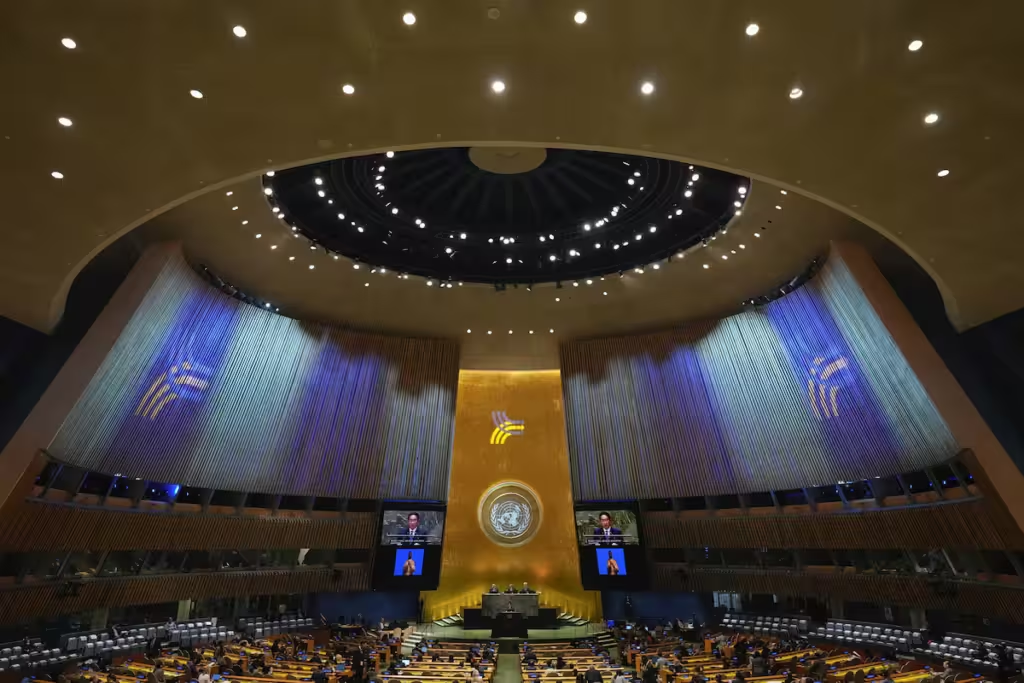In a landmark decision, world leaders on Sunday adopted the Pact for the Future, a comprehensive declaration that pledges concrete actions aimed at building a safer, more peaceful, sustainable, and inclusive world for future generations. The Pact, along with two key annexes—the Global Digital Compact and the Declaration on Future Generations—was adopted by consensus during a United Nations (UN) General Assembly session.
Despite a last-minute amendment proposed by Russia, Iran, North Korea (DPRK), and Syria, which called for the primacy of national sovereignty and reduced the role of civil society and private sector interests, the 193-member Assembly rejected the proposal and moved forward with the Pact as initially outlined.
Five Key Focus Areas
The Pact for the Future focuses on five broad areas of action: sustainable development, international peace and security, science and technology, youth and future generations, and transforming global governance. The initiative comes at a critical juncture, as multilateral institutions—including the UN—struggle to address the complex issues of the 21st century.
By endorsing the Pact, UN member states committed to:
- Accelerating progress on the Sustainable Development Goals (SDGs) and the Paris Agreement on climate change.
- Ensuring the voices of young people are included in decision-making processes at both national and international levels.
- Strengthening partnerships with civil society, private sectors, and local authorities to address global challenges.
- Promoting peaceful, inclusive, and just societies while addressing the root causes of conflict.
- Protecting civilians in armed conflicts and bolstering the implementation of commitments to women, peace, and security.
Global Digital Compact
The Global Digital Compact, a key annex to the Pact, marks the first global agreement on the regulation of artificial intelligence (AI). The Compact emphasizes that technology, particularly AI, should benefit all people. It addresses pressing issues such as the digital divide, cybersecurity, and the responsible use of AI. Governments are tasked with forming an impartial global Scientific Panel on AI to foster international cooperation on AI governance.
Declaration on Future Generations
The Declaration on Future Generations underscores the need to safeguard the interests of future generations by promoting sustainable development, intergenerational equity, and environmental protection. It emphasizes that decisions made today should account for long-term impacts on future societies.
Leadership Response
Following the adoption of the Pact, UN Secretary-General António Guterres expressed optimism, stating that the agreement “opens pathways to new possibilities and opportunities.” He highlighted that the global community is yearning for action to address issues such as climate change, inequality, and emerging security threats, and the UN remains central to solving these challenges.
Philémon Yang, President of the 79th session of the General Assembly, called for solidarity and cooperation, urging nations to work together for a future that respects human dignity and upholds human rights.
The adoption of the Pact for the Future concludes months of intense negotiations, co-facilitated by Germany and Namibia, and sets the stage for future international cooperation on critical global issues.



